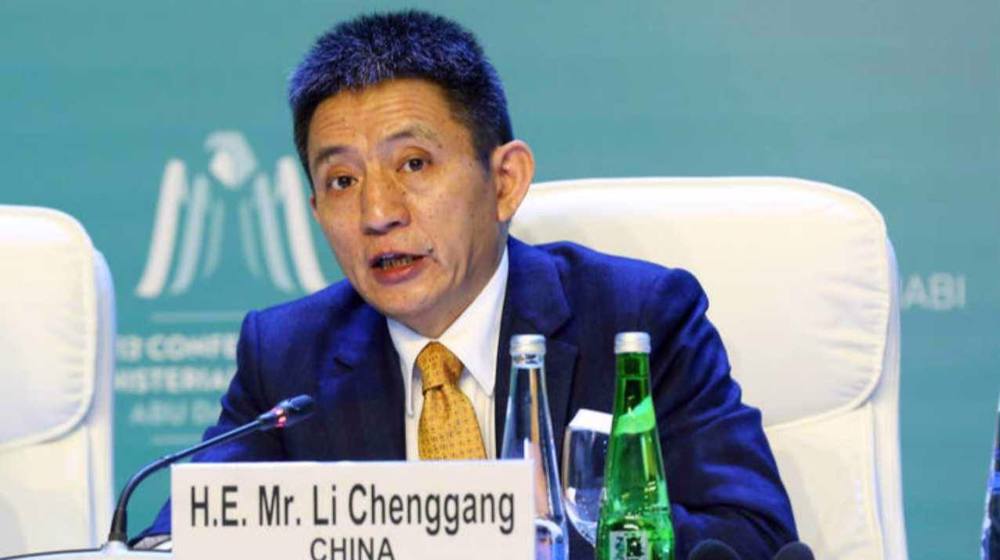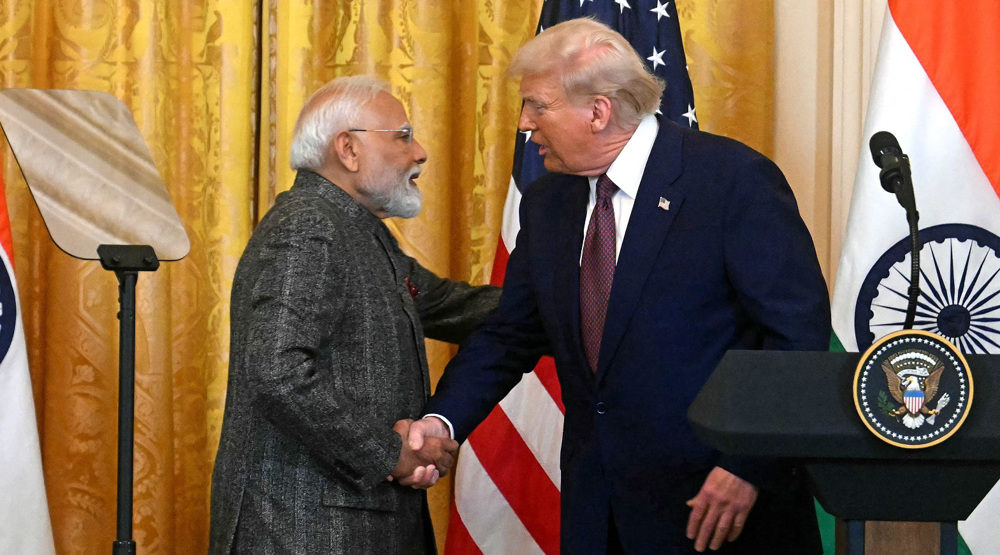China slams US for ‘crude interference’ in Hong Kong
China has denounced as “crude interference” proposed US legislation for the annual certification of Hong Kong’s autonomy.
US lawmakers on Thursday introduced the so-called Hong Kong Human Rights and Democracy Act, which would require the US secretary of state to issue an annual certification of Hong Kong’s autonomy.
Under the proposed bill, Hong Kong risks losing certain trade-related privileges with the US that are not enjoyed by mainland China.
On Friday, Chinese Foreign Ministry spokesman Geng Shuang called the introduction of the bill “irresponsible carping and crude interference.”
Speaking at a regular media briefing in Beijing, Geng urged the US “to give up its delusions of creating chaos in Hong Kong, stop pushing the proposed bill, and stop interfering in China’s domestic affairs.”
The development came shortly after days of unrest in Hong Kong over an extradition bill.
Hong Kong’s government seeks to have a law passed that allows suspects to be sent for trial to countries not covered by the region’s current extradition agreements. Critics say the law could be used to send Beijing’s political opponents to mainland China. Proponents say it makes for normal judicial processes that will close loopholes in current laws.
The protests were the most intense and violent on Wednesday, when the government was forced to postpone the second round of the debate on the extradition bill.
US officials have been supporting the protesters.
China summons senior US diplomat
Later on Friday, the Chinese Foreign Ministry summoned a senior US Embassy official to file stern representations over remarks and actions by the US government regarding Hong Kong.
According to the ministry’s statement, Chinese Vice Foreign Minister Le Yucheng summoned US Deputy Chief of Mission in Beijing Robert Forden and called on the US not to not take any action that harmed Hong Kong’s prosperity and stability.
“China will watch the US side’s actions and further respond,” Le said, without elaborating.
Former British colony Hong Kong was returned to China after about a century in 1997. Its legislative, executive, and judicial bodies are separate from and independent of China, and Beijing only maintains authority in defense, foreign affairs, and constitutional disputes.
Shocking details of Israeli army’s massacre of 90 civilians from Juha family in Gaza
VIDEO | Lebanese resistance remains alive
Iran’s daily sweet gas production peaks at 870 mcm: NIGC
Nasrallah shattered myth of Israeli military’s invincibility: Top Yemeni official
Iran says it has attracted $8.2bn of foreign investment since Aug
‘Misguided policies’: Araghchi says unjust sanctions inflict suffering on innocent Iranians
Iran summons Polish envoy over 'baseless, biased' drone claims
Election winner conservative Merz invites Netanyahu to Germany despite ICC warrant













 This makes it easy to access the Press TV website
This makes it easy to access the Press TV website